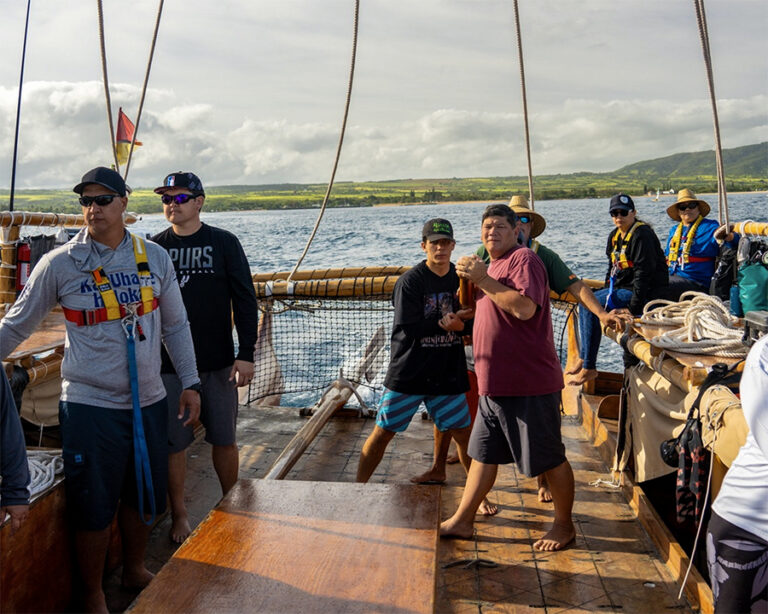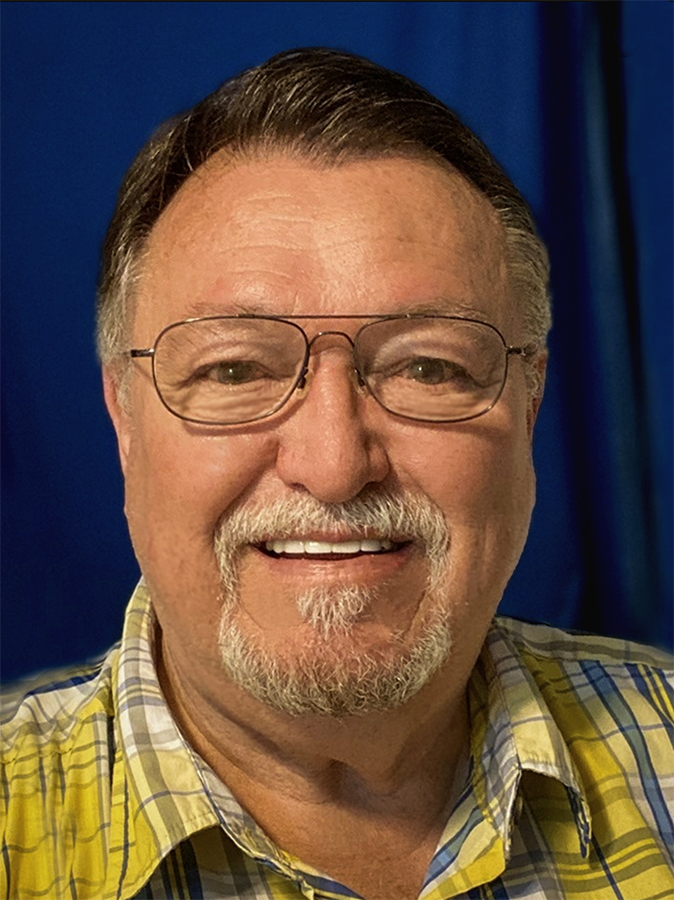MARK ELLIS CAPTIONS THE IOSEPA IN 2024 ON ITS FIRST VOYAGE IN THE PAST EIGHT YEARS
By Mike Foley

BYUH and the Cultural Center’s expanded Iosepa agreement: Meanwhile, the roots of Ellis’ new role at the Polynesian Cultural Center go back to 2008, when BYUH agreed to permanently berth the Iosepa in a new hālau wa’a (canoe house) in the PCC’s Hawaiian Village.
The distinctive A-shaped hālau was built with the help of donations and named Kaua‘iwiulaokalani in the late Uncle Bill’s honor. There, millions of visitors have seen the Iosepa up close, while the BYUH Hawaiian Studies program faculty and staff continue to use it for hands-on training.
When FestPAC organizers designated Honolulu as its 2024 venue, BYU–Hawaii and Center leaders modified the agreement further: BYUH would continue to use the Iosepa as a “floating classroom,” while the Cultural Center agreed to take a bigger role in maintaining the iconic canoe, preparing it to sail, and helping train crew members.
They soon identified Mark Ellis as an ideal person to carry on this work, which he sees as an opportunity to honor the accomplishments of his ancestors, help Hawaiian Studies students and others at BYU–Hawaii and the Polynesian Cultural Center, and “as a beautiful tool to use in the community, because many times they’ll also remember the feelings they received from the Iosepa.”
For his part, Ellis recently said he feels his own “confirmation that this is the place where I need to be. I’m just following through with that.”
